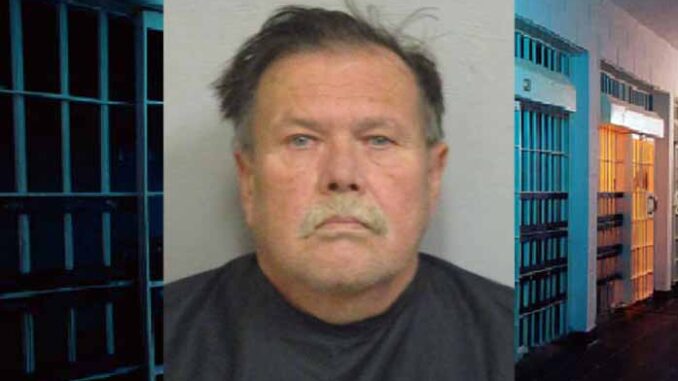
A Cochise County judge has ruled that a man’s self-incriminating statements about downloading and viewing child pornography can be admitted at trial next month even though the man told a sheriff’s detective he wanted an attorney before making the confession.
Steven Lemley is set to stand trial Dec. 7 in Judge Timothy Dickerson’s courtroom. It will be a bench trial, meaning Dickerson and not a jury will decide if Lemley is guilty of the charges brought forth by two county grand juries.
Lemley, 69, was originally indicted in June 2019 on one felony count of sexual exploitation of a minor under age 15. Just a few weeks ago, another grand jury indictment was issued with 10 additional Class 2 felonies,
In Arizona, Class 2 felonies include manslaughter, armed robbery, and arson of an occupied building.
Ryan Huffman, Lemley’s Tucson-based defense attorney, had asked Dickerson to dismiss all the charges against this client due to an alleged constitutional violation by Det. Todd Borquez of the Cochise County Sheriff’s Office (CCSO). In the alternative, Dickerson was asked to declare Lemley’s confession inadmissible.
Dickerson denied both defense motions on Wednesday. The judge then confirmed the case is ready for the three day trial.
Among the evidence to be presented at trial is a report from Microsoft that an image involving a pubescent minor in “lascivious exhibition” was transferred on one of its platforms in December 2018. The tip was eventually forwarded to CCSO in April 2019 at which time Borquez was assigned as lead investigator.
After reviewing the image, Borquez categorized the victim as a prepubescent female, age 8 to 11. He then issued a subpoena to identify the owner of the internet account flagged by Microsoft.
According to Borquez, the account was in the name of Lemley’s father who died in 2012. It was later determined Steven Lemley lived at that address.
A search warrant executed in June 2019 at Lemley’s residence in the unincorporated community of Cochise near Dragoon led to the seizure of a laptop later found to contain multiple images of child pornography as well as legal, adult pornography.
It is what happened next that led to the allegation that Borquez interfered with Lemley’s rights to legal counsel under the U.S. and the Arizona constitutions.
Court records show Lemley was handcuffed during the search of his home and then transported to a sheriff’s substation in Willcox to be interviewed by Borquez. When Borquez announced he would be reading Lemley’s the Miranda Warning, Lemley interrupted the detective by saying, “lawyer, lawyer.”
Borquez then asked Lemley if he was requesting an attorney, to which Lemley replied “yep.”
As per policy, Borquez finished telling Lemley his Miranda rights. He then asked if Lemley wanted to talk about the matter. It was then that Lemley made several incriminating statements about how he ended up on at least one illicit website after clinking weblinks while accessing legal, adult pornography site.
Borquez’s probable cause statement notes Lemley admitted knowing he was viewing child pornography, although Lemley also insisted he tried to delete a child pornography site that popped up on his computer, but “it would come back,” he told Borquez. Lemley was then arrested and booked into the Cochise County jail.
Huffman, his defense attorney, argued that Borquez should have never engaged Lemley in any questioning once Lemley brought up the subject of an attorney. He cited several Arizona Supreme Court and U.S. Supreme Court cases related to interpretation of the Miranda Warning.
One of the citations supported Lemley’s request for dismissal of the charges, as “it is impossible to foresee what advice would have been given defendant had he been able to confer privately with counsel.”
However, Dana Souser of the Cochise County Attorney’s Office pointed out that Lemley asked for an attorney at first because the detective was not explaining why Lemley was handcuffed at the sheriff’s substation. Once Borquez explained that he was investigating child pornography, Lemley voluntarily spoke with the detective, Souser argued.
Dickerson listened to an audio recording of Borquez’s interview with Lemley, and agreed with the prosecutor that Lemley’s brief comments about wanting a lawyer stemmed from the fact Lemley was not being told what was going on. After being told about the investigation, Lemley was given what he wanted -an explanation- and made no further mention of desiring to confer with an attorney, the judge ruled.
EDITOR NOTE: The article has been updated to reflect that Dickerson listened to Borquez’s interview with Lemley instead of watching a recording.

